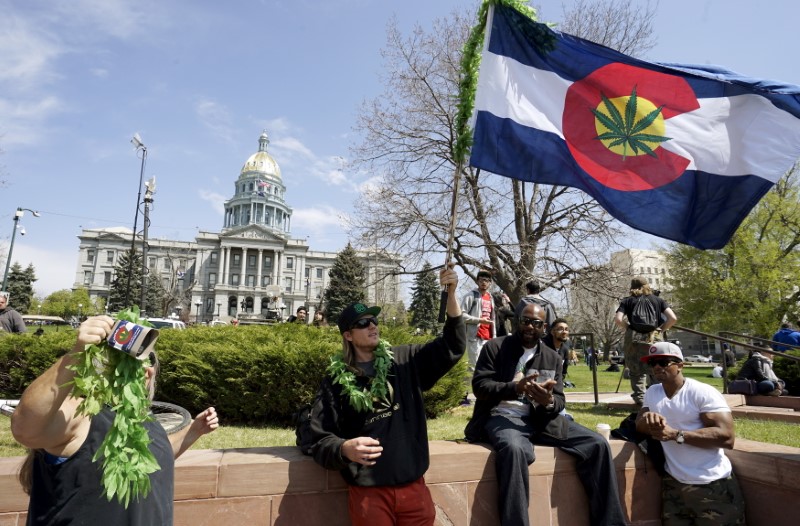(Reuters) - A measure that would make Denver the first city in the United States to legalize the use of marijuana in such venues as clubs, bars and restaurants is expected to get enough votes to pass, backers and opponents of the initiative said on Tuesday.
The announcement comes amid a string of victories for proponents of medical and recreational marijuana use, with voters in California and Massachusetts approving ballot initiatives legalizing recreational use of the drug last week.
The Colorado measure will permit private businesses to allow marijuana use by adults in designated areas with certain exceptions. Backers of the initiative said it would make Denver the first city in the country where cannabis enthusiasts can enjoy the drug socially without fear of arrest.
"This is a victory for cannabis consumers who, like alcohol consumers, simply want the option to enjoy cannabis in social settings," Kayvan Khalatbari, a Denver businessman and lead proponent of the so-called I-300 measure, said in a statement on Tuesday.
While other states have authorized similar plans, Khalatbari said Denver would be the first to actually implement them. He said businesses in the city could start opening their doors to pot users as soon as late January.
Approval for Denver's initiative was leading in preliminary vote totals from last week's election. While the city's elections agency said they would not certify results until next Tuesday, campaigns that supported and opposed the measure both agreed it had passed.
Rachel O'Bryan, the campaign manager for the opposition group Protect Denver's Atmosphere, said by phone there did not appear to be enough outstanding ballots for the measure to fail.
"Back in 2012, marijuana legalization passed with a strong majority in Denver ... and now about four years later, I-300 passed with a much smaller margin. We think many voters voted in favor of marijuana legalization, but didn't want to see marijuana everywhere," she said.
She said the bill's opponents are concerned about public safety as well as issues of second-hand smoke indoors. O'Bryan said she hopes the city council and possibly the state's Attorney General will closely examine the law to see if it runs afoul of provisions in state law barring public pot use.

Recreational marijuana was first approved in 2012 by the states of Washington and Colorado, and later by voters in Oregon, Alaska and the District of Columbia. California, Massachusetts and Nevada all approved recreational use after voting last Tuesday.